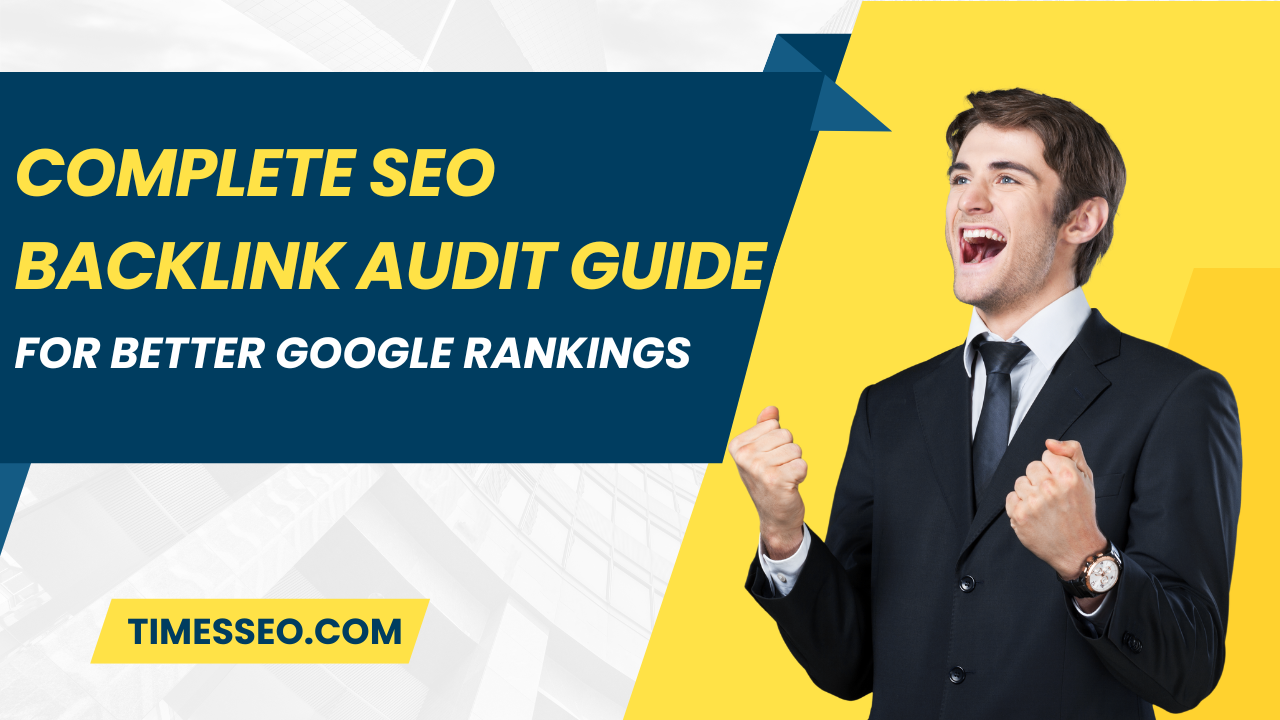
How Rank Tracking Tools Can Improve Your Keyword Strategy
Discover how rank tracking tools can refine your keyword strategy by monitoring performance, uncovering opportunities, and boosting SEO results.
Table of Contents
Introduction
If SEO were a ship, then keywords would be its compass, guiding it toward visibility and traffic. But here’s the catch—without tracking where your keywords are heading, you’re essentially sailing blind. Tools for rank tracking come into play here. They act as a GPS for your SEO journey, showing you whether your strategy is moving you closer to your goals or drifting off course.
What Are Rank Tracking Tools?
To put it briefly, rank tracking programs monitor the position of your website for specific search engine terms. Imagine checking a scoreboard after every game—that’s exactly what these tools do for your keywords.
They gather real-time data from search engines, analyze performance, and present easy-to-understand reports. This way, you always know whether your keywords are climbing, dropping, or holding steady.
Why Keyword Strategy Is the Backbone of SEO
More than just words, keywords serve as a conduit between your audience and your content. A solid keyword strategy ensures:
- The appropriate people see your website.
- The volume and caliber of traffic are both high.
- You’re ranking for terms that actually lead to sales or conversions.
Without a strong keyword plan, even the most stunning websites remain invisible.
How Rank Tracking Tools Provide Real-Time Insights
SEO is dynamic—what’s ranking today might not rank tomorrow. With daily or weekly updates, rank trackers let you quickly spot dips or wins. They also provide trend analysis, so you can see whether changes are temporary or long-term patterns.
The Core Functions of Rank Tracking Tools
Rank tracking tools serve several essential functions:
- Monitoring Keyword Rankings – Track how your keywords perform daily.
- Identifying Opportunities – Spot keywords you’re close to ranking for and push them higher.
- Tracking Competitors – See what others are doing and where they’re gaining traction.
Think of it as having a performance coach constantly evaluating your SEO fitness.
Spotting Keyword Performance Fluctuations
Search rankings can shift due to:
- Seasonal search behaviors (think “Black Friday deals”).
- Algorithm changes from Google.
- Competitor activity.
Rank tracking tools reveal these fluctuations, so you know whether it’s time to tweak strategy or wait it out.
Identifying Underperforming Keywords
Not all keywords are winners. Tools can highlight terms stuck on page two or three. Instead of giving up, you can refresh content, build backlinks, or adjust intent to nudge them upward.
Discovering New Keyword Opportunities
Modern tools uncover:
- Long-tail keywords – Less competitive, more specific searches.
- Local keywords – Phrases tied to locations like “best dentist in Chicago.”
These hidden gems often deliver targeted traffic with higher conversion rates.
Tracking Competitor Keywords
Your competitors aren’t just rivals—they’re also your teachers. Rank tracking tools let you:
- Benchmark against them.
- Identify keywords they rank for that you don’t.
- Spot weaknesses in their strategy you can exploit.
It’s like peeking into their playbook without them knowing.
Integrating Rank Tracking Tools with Your SEO Workflow
Writing content is only one aspect of a successful SEO approach. It’s about aligning content, backlinks, and technical optimization. Rank tracking tools tie everything together by showing which efforts are paying off.
For example:
- Writing a blog? Check if it ranks.
- Building backlinks? See if rankings improve.
How Rank Tracking Tools Boost Local SEO
For businesses targeting specific cities or neighborhoods, rank trackers are gold. They show how well you rank in local searches and help you tailor content to capture local traffic.
Measuring ROI from Keyword Strategy
Rankings are nice, but do they bring in business? Tools connect rankings with:
- Organic traffic levels.
- Conversion rates.
- Revenue impact.
That way, you can prove your SEO efforts aren’t just numbers on a screen.
Popular Rank Tracking Tools You Should Know
Some top players in the space include:
- SEMrush – Comprehensive keyword tracking and competitor analysis.
- Ahrefs: Excellent for keyword ranking and backlink analysis.
- SERPWatcher (Mangools) – User-friendly rank tracking.
- Google Search Console is free and reliable for beginners.
Common Mistakes in Using Rank Tracking Tools
- Tracking too many irrelevant keywords.
- disregarding search intent (it is pointless to rank #1 for a keyword that doesn’t convert).
- Overreacting to small daily ranking changes.
Best Practices for Using Rank Tracking Tools
- Focus on high-intent keywords.
- Track a healthy mix of short-tail and long-tail.
- Audit keyword performance regularly.
- Always align keyword strategy with business goals.
Future of Keyword Strategy and Rank Tracking
The future is bright and data-driven. Expect:
- AI-based predictive tracking – Tools will suggest which keywords will grow.
- Voice search optimization: Natural, conversational questions will become the new keywords.
- Mobile-first rankings – Local and mobile-friendly searches will dominate.
Conclusion
At its core, keyword strategy is about direction, and rank tracking tools are your compass. They not only show you where you stand today but also guide you toward future growth. By using these tools wisely, you can outpace competitors, capture valuable traffic, and build a keyword strategy that truly works.
Frequently Asked Questions
Yes! Without it, you’re just guessing whether your SEO efforts are paying off.
Weekly checks are ideal, but daily tracking is helpful for competitive niches.
Keyword research finds what to target, while rank tracking shows how well you’re performing for those keywords.
They’re great for beginners, but paid tools offer deeper insights, competitor tracking, and advanced features.
Don’t obsess over every fluctuation. Focus on long-term trends and how rankings translate into traffic and conversions.
Table of Contents
Popular Posts
-
 Affordable Technical SEO Audit for Small Business: A Complete Guide26 Jun 2025 Blog
Affordable Technical SEO Audit for Small Business: A Complete Guide26 Jun 2025 Blog -
 How to Get an Affordable Technical SEO Audit for Small Business27 Jun 2025 Blog
How to Get an Affordable Technical SEO Audit for Small Business27 Jun 2025 Blog -
 The Ultimate Local SEO Audit Checklist for Startups28 Jun 2025 Blog
The Ultimate Local SEO Audit Checklist for Startups28 Jun 2025 Blog -
 Local SEO Audit Checklist for Startups: A Beginner’s Guide28 Jun 2025 Blog
Local SEO Audit Checklist for Startups: A Beginner’s Guide28 Jun 2025 Blog -
 Top On-Page SEO Audit Steps for Service Websites Every Business Should Know29 Jun 2025 Blog
Top On-Page SEO Audit Steps for Service Websites Every Business Should Know29 Jun 2025 Blog -
 Technical SEO for WordPress: The Ultimate Beginner’s Guide01 Jul 2025 Blog
Technical SEO for WordPress: The Ultimate Beginner’s Guide01 Jul 2025 Blog -
 The Impact of On-Page SEO Audit Steps for Service Websites on UX01 Jul 2025 Blog
The Impact of On-Page SEO Audit Steps for Service Websites on UX01 Jul 2025 Blog -
 Technical Mobile SEO Audit Tips for Developers02 Jul 2025 Blog
Technical Mobile SEO Audit Tips for Developers02 Jul 2025 Blog -
 Complete SEO Backlink Audit Guide for Better Google Rankings03 Jul 2025 Blog
Complete SEO Backlink Audit Guide for Better Google Rankings03 Jul 2025 Blog -
 Boost Your Rankings with Technical SEO for WordPress01 Jul 2025 Blog
Boost Your Rankings with Technical SEO for WordPress01 Jul 2025 Blog


